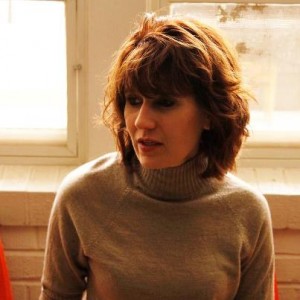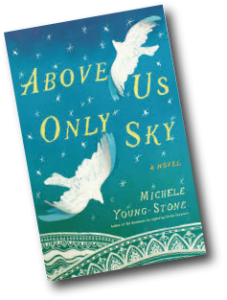 Michele Young-Stone’s first novel, The Handbook for Lightening Strike Survivors established her as a new and distinct voice in American letters. Her second novel, Above Us Only Sky, is now out and is every bit as original, heartfelt and lovingly written as her first. It is a magical novel about a family of women separated by oceans, generations, and war, but connected by something much greater—the gift of wings. Both novels offer whimsical, imaginative stories that balance danger and the dark side of life with an uplifting spirit. Lydia Netzer, author of the Shine, Shine, Shine and How to Tell Toledo from the Night Sky, has called, Above Us Only Sky “...a raw, beautiful, unforgettable book that folds unfathomable horrors and unfathomable love into a story of incredible power."
I've had the pleasure of getting to know Michele when we were neighbors in Richmond. When her first novel came out, I interviewed her, her editor, and her agent at a James River Writers event. Michele has a sparkle to her that is evident in person and on every page she writes. I'm delighted to interview her here.
Michele Young-Stone’s first novel, The Handbook for Lightening Strike Survivors established her as a new and distinct voice in American letters. Her second novel, Above Us Only Sky, is now out and is every bit as original, heartfelt and lovingly written as her first. It is a magical novel about a family of women separated by oceans, generations, and war, but connected by something much greater—the gift of wings. Both novels offer whimsical, imaginative stories that balance danger and the dark side of life with an uplifting spirit. Lydia Netzer, author of the Shine, Shine, Shine and How to Tell Toledo from the Night Sky, has called, Above Us Only Sky “...a raw, beautiful, unforgettable book that folds unfathomable horrors and unfathomable love into a story of incredible power."
I've had the pleasure of getting to know Michele when we were neighbors in Richmond. When her first novel came out, I interviewed her, her editor, and her agent at a James River Writers event. Michele has a sparkle to her that is evident in person and on every page she writes. I'm delighted to interview her here.
VP: Your second novel is set both in the present in America and in the past in Lithuania during WWII. I’d love to know how you accomplished your research for the historical scenes. Was that a difficult part of the process of writing for you, or did you enjoy it?
MYS: I enjoy researching. Although reading articles and first-hand accounts of Stalin’s purges was emotionally difficult, it also fed my creativity and my desire to show that in the greatest darkness, some light remains.
VP: So much in the book world today is dictated by marketing strategies. Above Us Only Sky could be marketed as a literary novel, as fantasy or magic realism (because it has those elements), or as an historical novel. What do you think about such labels? Do they work in the author’s favor or are they limiting?
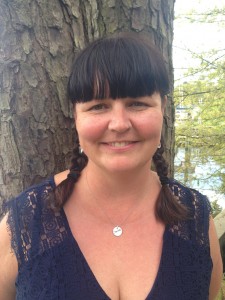 MYS: It’s also a YA novel! I don’t mind labels. I don’t think about them. I write my books and let marketing folks label them as they see fit. I think I’ll always fall under the umbrella of magical realism because I see the world in a magical way. I recently realized that magical realism is nothing more than perception. When I was a kid, I had an imaginary friend named Booby; he lived in the train station in Crewe, Virginia. I also used to cook for the queen of England. Imagination is everything in fiction. My life is magical. I feel God when I’m by the ocean, and I live by the sea. When I write, I impart my worldview.
MYS: It’s also a YA novel! I don’t mind labels. I don’t think about them. I write my books and let marketing folks label them as they see fit. I think I’ll always fall under the umbrella of magical realism because I see the world in a magical way. I recently realized that magical realism is nothing more than perception. When I was a kid, I had an imaginary friend named Booby; he lived in the train station in Crewe, Virginia. I also used to cook for the queen of England. Imagination is everything in fiction. My life is magical. I feel God when I’m by the ocean, and I live by the sea. When I write, I impart my worldview.
VP: The Handbook for Lightening Strike Survivors made a big splash when Target chose it for their shelves. Did you feel much pressure as you wrote the second book for it to do as well?
MYS: Yes and no. We writers always put more pressure on ourselves than any editor or agent could ever apply. I was worried about the sophomore slump; I was worried about writing something as well-received as The Handbook for Lightning Strike Survivors, but more than anything, I wanted to keep growing and evolving as a novelist. I wanted to write something grand, reflective of my developing style, but I try not to think about how well my book is “selling”. I try to revel in the art itself, in the book, the ISBN number, the accomplishment of telling a compelling story.
VP: I’m curious about the way your first novel leads into this second one. What elements do you think the two novels share?
MYS: Well, interviewers have pinpointed those elements for me. I never realized that both my novels have protagonists who have major turning points at age sixteen. Both novels tell parallel stories. Both novels have unusual quirky male characters, and both novels explore multiple story perspectives. There are so many similarities, including the theme that art is a form of salvation.
VP: I’m sure your readers would love to know what you’re working on now.
MYS: I am working on a book currently titled G or The Great American Novel, about Gloria Ricci, a young woman who grows up with ghosts after her mother’s twins die at birth. As Gloria searches for love in the 1960s and 70s, she finds it first in another young woman and next in a gay young man, neither route acceptable in American society. The novel spans post WWII America up to the 1980s. It is a story about ghosts and love, about bending versus breaking, and about young girls burning in the 1960s.
VP: Any advice for aspiring writers, or writers who are working to sustain their careers over time?
MYS: Have faith. Write because you love the act. Write because you can’t imagine not doing it. If you want to publish, keep working. Keep trying. The business side of writing is a necessary evil (or not). It’s up to you. If you want to publish traditionally, you’ll have to be part of the ever-evolving world of publishing and wear a less flamboyant and more practical hat. Some people can wear both, and some can’t.


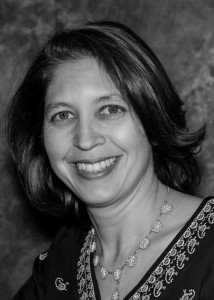
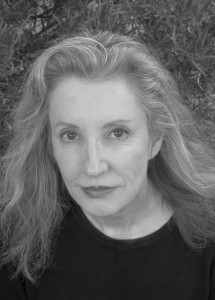

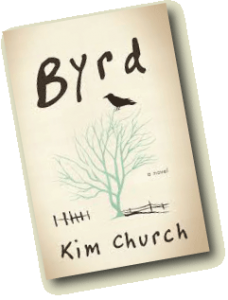
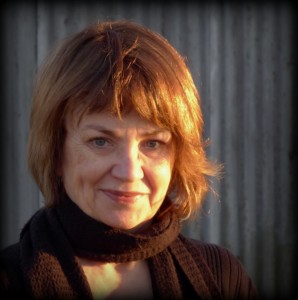 KC: The structure evolved from the story. My first draft was a linear first-person narrative from Addie’s point of view. When I began to revise, I realized first-person didn’t work: Addie
doesn’t know enough to tell the whole story. So I—gulp—started over, writing from every point of view I could think of. At the same time, I didn’t want to lose the intimacy of first person; I wanted to keep Addie’s voice—which I did through her letters to Byrd, her absent son. The book ended up with a fairly intricate structure, but it worked, at least for me. It gave me access to the whole story. And, as you say, it also led me to think more about missed connections and missed opportunities and the slipperiness of memory and just how little people actually know about each other.
KC: The structure evolved from the story. My first draft was a linear first-person narrative from Addie’s point of view. When I began to revise, I realized first-person didn’t work: Addie
doesn’t know enough to tell the whole story. So I—gulp—started over, writing from every point of view I could think of. At the same time, I didn’t want to lose the intimacy of first person; I wanted to keep Addie’s voice—which I did through her letters to Byrd, her absent son. The book ended up with a fairly intricate structure, but it worked, at least for me. It gave me access to the whole story. And, as you say, it also led me to think more about missed connections and missed opportunities and the slipperiness of memory and just how little people actually know about each other.